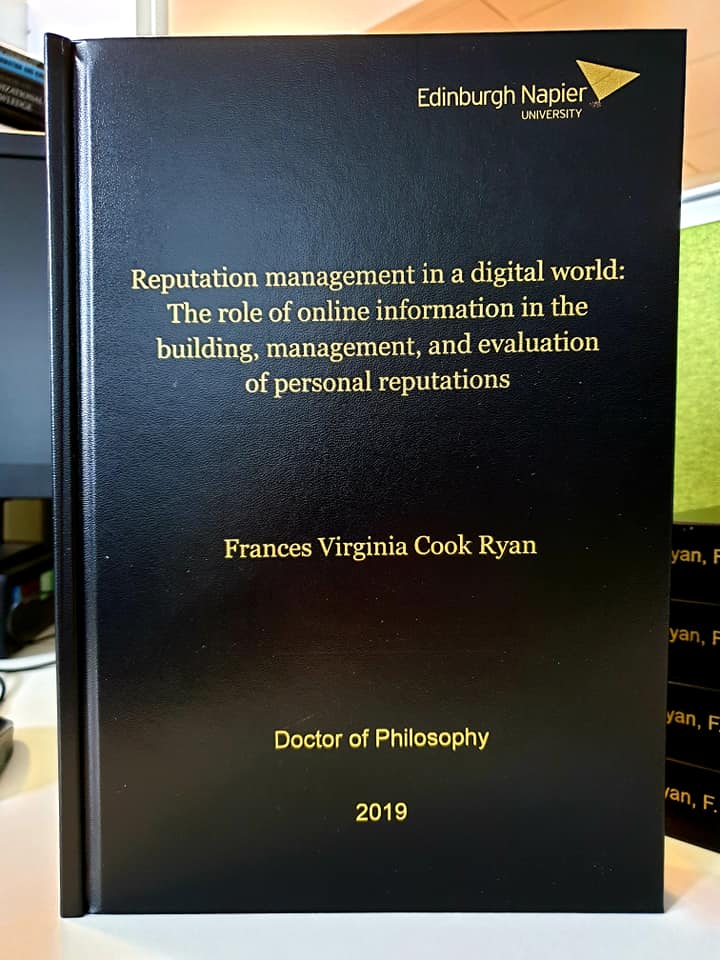My PhD was completed at Edinburgh Napier University (2019) under the supervision of Professor Hazel Hall, Alistair Lawson, and Peter Cruickshank.
Download the document (PDF) here:
https://www.napier.ac.uk/~/media/worktribe/output-2090098/reputation-management-in-a-digital-world-the-role-of-online-information-in-the-building.pdf
Cite: Ryan, F. V. C. (2019). Reputation management in a digital world: The role of online information in the building, management, and evaluation of personal reputations. (Thesis). Edinburgh Napier University. Retrieved from http://researchrepository.napier.ac.uk/Output/2090098.
You can read the full abstract below and you can find research outputs from this work on the publications page.
Please contact me if you have questions about the thesis or my current research.
Abstract:
This work is concerned with the role of online information in the building, management, and evaluation of personal reputations. The main contributions of the research relate to (1) the means by which people evaluate the personal reputations of others from the online evidence available to them, and (2) strategies for the building and management of personal reputations through the use of online information. The findings extend knowledge within the domain of Information Science, notably with respect to the established body of research on human information behaviour and use. They are set against a theoretical framework that is anchored to research in bibliometrics (for example on citation practice and citation analysis), and takes into account the multidisciplinary nature of the field of Information Science.
A multi-step data collection process was implemented following the practice of extant studies in Information Science and human information behaviour and use. This focused on a sample of forty-five UK-based social media users. A qualitative analysis of data collected from participant diaries and interviews was undertaken using NVivo10.
The main contribution of this work with respect to the evaluation of personal reputations on the basis of online evidence is that the information available is largely consumed and evaluated in a passive manner: social media users are more interested in the content of the information that is shared on social media platforms than they are in the signals that this information might convey about the sharer(s). Closer attention is paid in cases where the information shared is in stark contrast to the opinions and practices of those who consume it. In terms of the management of personal reputations through the use of online information, this work introduces and develops new concepts related to managing the “blur” that occurs at the intersection between private and professional lives, and online and offline environments.
